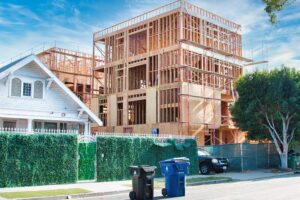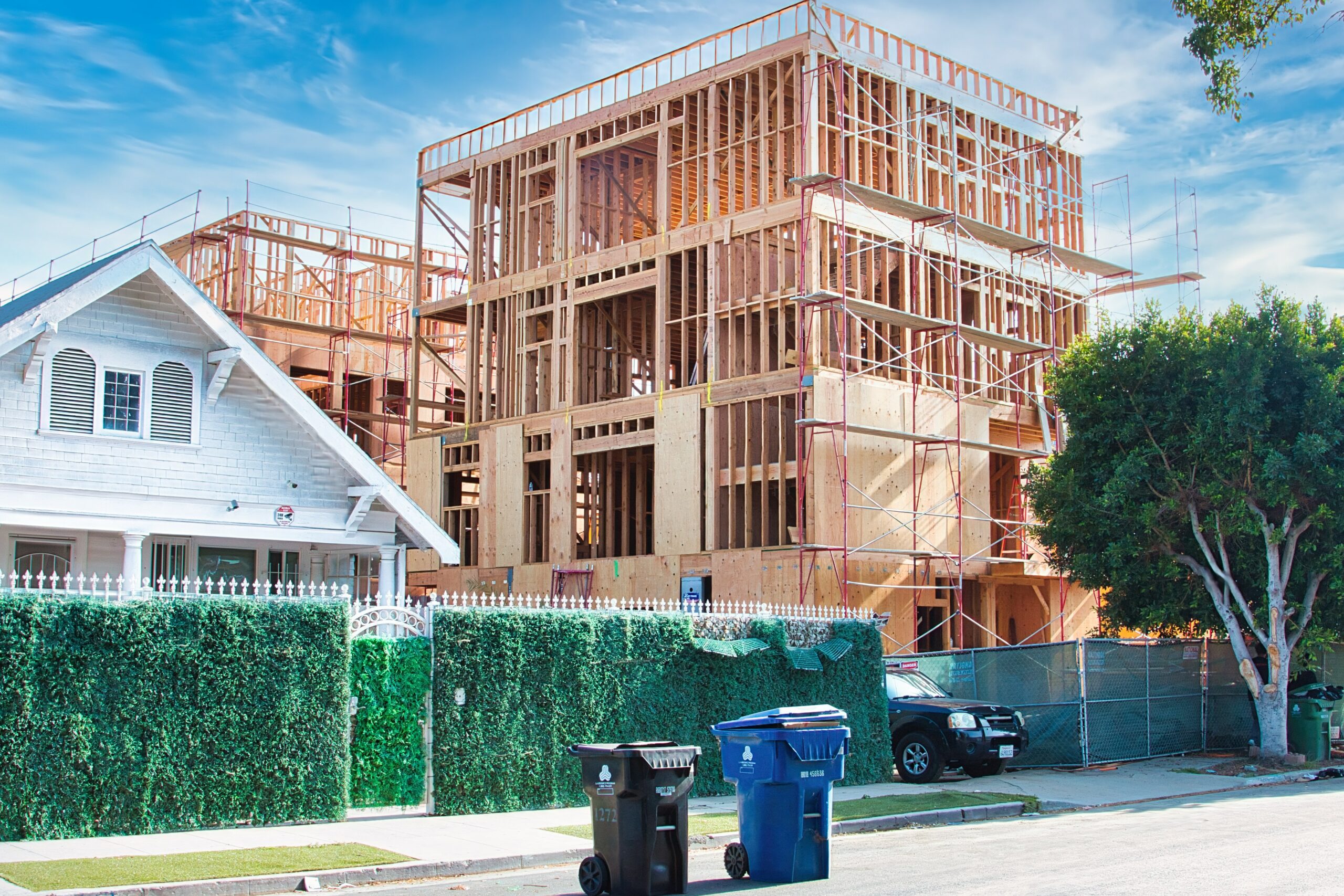
By the United Neighbors in Defense Against Displacement (UNIDAD) Coalition
July 22, 2024
On July 1, 2024, Los Angeles Mayor Karen Bass issued a third revision to her Executive Directive 1 (ED1). Originally issued in December 2022, ED1 is intended to speed up the production of much-needed affordable housing in Los Angeles by making it easier to secure permits, clearances, and approvals for developments that are 100% affordable to renters at or below 80% of the Area Median Income. The most recent amendments to ED1 include exempting rent-stabilized buildings of 12 or more units from streamlining, improving and expanding the resources available to displaced renters, and creating a Priority Occupancy Process to give those renters priority placement in other subsidized or covenanted affordable housing developments.
The United Neighbors in Defense Against Displacement (UNIDAD) Coalition has been tracking ED1 developments over the past 20 months, and we have seen many unintended but nonetheless harmful consequences of the directive: longtime renters evicted from their homes, affordable units demolished, and a lack of resources and assistance for those displaced by these new developments. We support the construction of new affordable housing, but the city must ensure ED1 developments do not cause displacement and gentrification and harm low-income communities of color, who continue to bear the burden of our housing system’s systemic inequities. Affordable housing advocates often center the solution to our housing and homelessness crisis on the Three Ps: the production of new affordable housing, the preservation of existing affordable housing, and strong renter protections. Our goal is to ensure preservation and protection are not lost in the city’s focus on streamlining production.
LARSO EXEMPTION FOR 12 OR MORE UNITS
Exempting rent-stabilized (LARSO) apartment buildings with 12 or more units from streamlined redevelopment is a good step forward, but doesn’t go far enough. The vast majority of LARSO homes in Los Angeles are in buildings with 11 or fewer units, and they and their inhabitants are just as valuable. The city should exempt all LARSO buildings from streamlining. Requiring a review process for LARSO buildings will ensure that the benefits of redeveloping the property outweigh the harm of relocating the households that live there.
PRIORITY OCCUPANCY PROCESS
We strongly support the Priority Occupancy Process that the Los Angeles Housing Department (LAHD) has been directed to develop, and we look forward to partnering with LAHD to make this process successful across all of the city’s affordable housing development strategies.
TENANT RELOCATION SERVICES
The changes to the tenant relocation services represent a significant improvement to the tenant protections in ED1. Tenants will now have 30 days to respond to income surveys and verification requests, and their language needs will be considered. We hope these improvements will result in better support to families navigating the stressful experience of eviction.
STREAMLINING ON HAZARDOUS SITES
The city must ensure low-income BIPOC communities do not continue to be relegated to dangerous and toxic land. Unfortunately, ED1’s new provision limiting streamlining on contaminated hazardous waste and oil and gas sites does not go far enough. The new provision relies on a list of hazardous sites maintained by the California Department of Toxic Substances Control, but this list is not comprehensive and omits land that local communities have identified as toxic but the state has not officially acknowledged. For this reason, community hearings should be required to help identify contaminated land, and environmental assessments should be required for new developments located near hazardous sites. Assessments should align with SB 4 rules that specify setbacks for projects near freeways and industrial sites and SB 1137’s stipulation requiring a 3,200-foot setback from current and former oil and gas sites.
SINGLE-FAMILY ZONES
We are disappointed that ED1 still does not include provisions to ensure affordable housing is also developed in single-family zones, especially in areas where affordable housing is often blocked. Even in single-family zones, UNIDAD’s principles of equitable development and value-capture strategies should apply, both to prevent displacement and gentrification and to advance racial and economic justice. In South L.A., for example, many single-family homes are owned by corporate landlords driving displacement through evictions and rent gouging. Allowing single-family neighborhoods to be upzoned without adequate value-capture strategies and protections for low-income BIPOC residents will only encourage corporate landlords to further harm and displace these communities. Upzoning should take the history and needs of BIPOC neighborhoods—such as decades of racist redlining policies and lack of access to banking opportunities—into account by prioritizing homeownership opportunities for these residents.
We applaud Mayor Bass for taking action when the City Council has not: the Affordable Housing Streamlining Ordinance would make ED1 permanent, but it has been sitting for over a year now in committee. Council should stop stalling and adopt the ordinance with the modifications Mayor Bass has implemented as well as UNIDAD’s recommendations, outlined in letters sent on June 24, 2024, October 25, 2023, August 24, 2023, and June 20, 2023.

